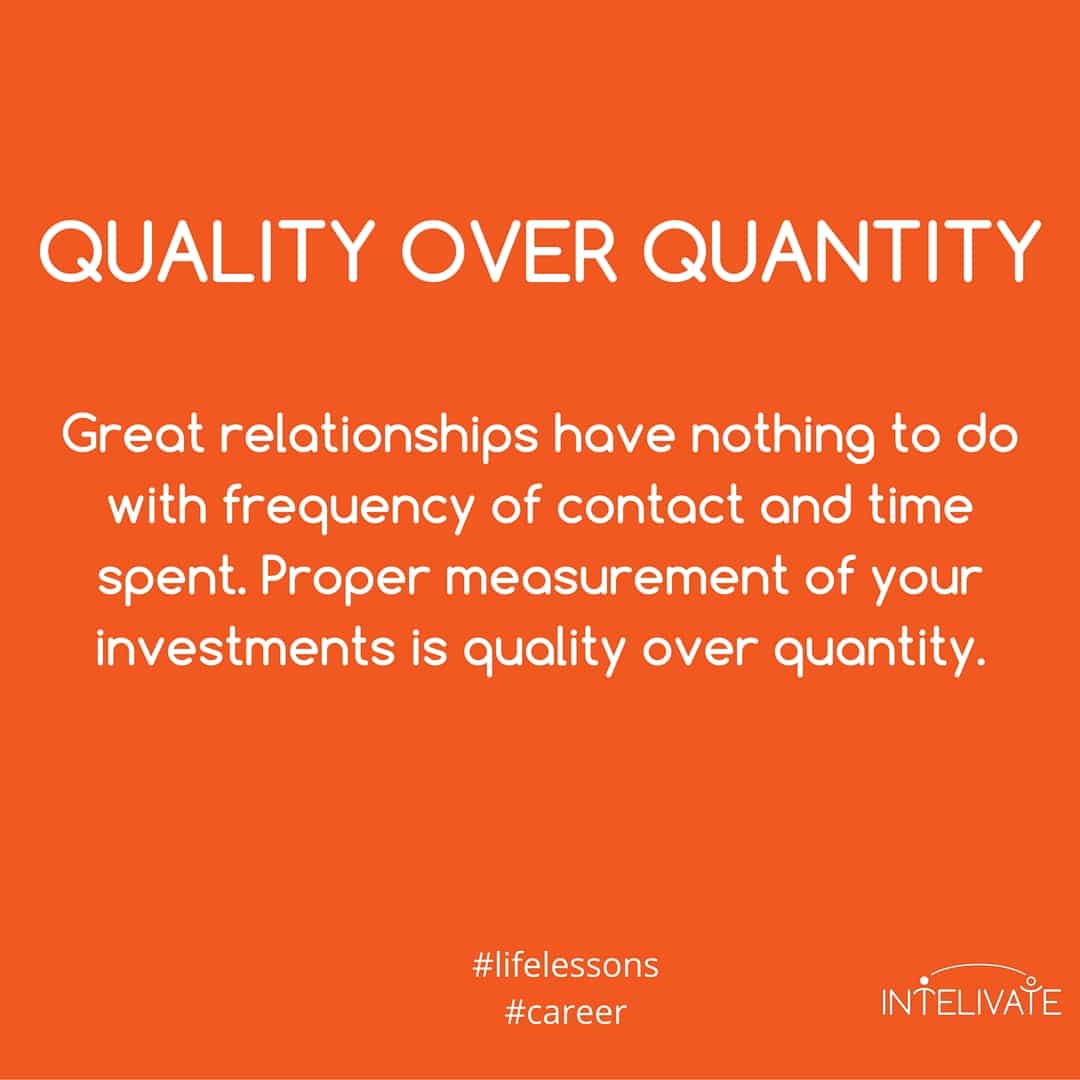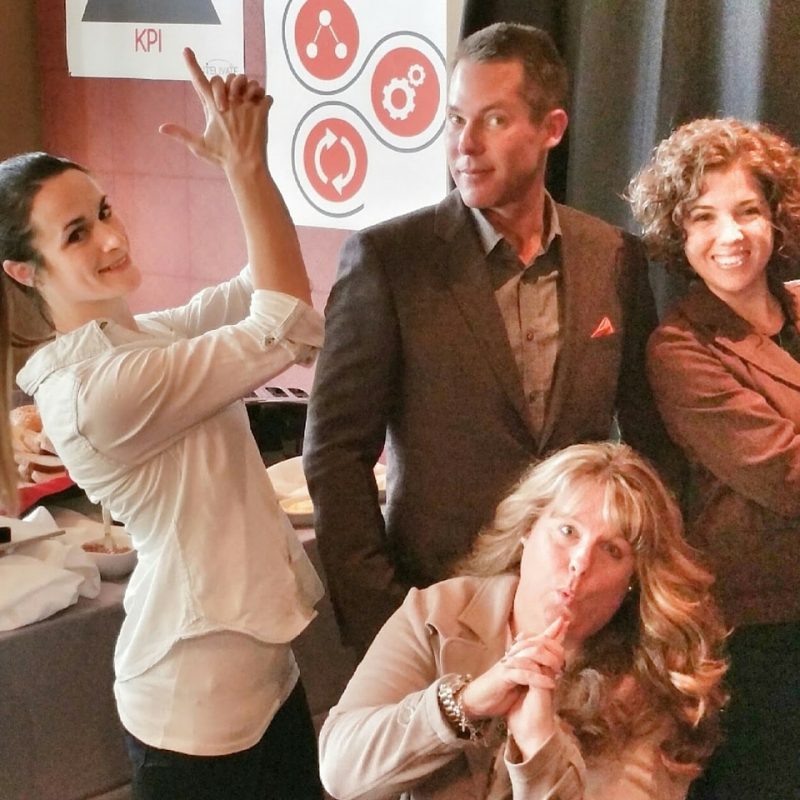Intelivate’s advice to a reader whose workplace culture is full of gossip and backstabbing. We break down who is responsible, how to deal with backstabbing coworkers, and how you stay successful.
We asked you about your biggest workplace culture challenges (don’t let the cute Maverick photo fool you – he’s currently going through the ‘terrible twos’).

Her response was to-the-point:
“Colleagues’ gossip and bad-talking others. I wish we all lived by the motto, “If you have nothing nice to say, don’t say it.”
Ironically, I am familiar with Amanda’s workplace. She works at a private club at which I am a member. I’ll just say the members can be..ummmm…hmmmm..’demanding’ (myself excluded of course).
Being in a smaller work environment like this can amplify a bad culture even more. Here was my response to her (modified for context).
1. Identify the Cause – Organizational or Individual?
I am a HUGE believer that in developing any solution (personally or professionally), it’s imperative to identify the ‘root cause.’ Otherwise, you just end up putting patches in and fixing symptoms of the backstabbing issue without ever fixing the core. That causes chaos and frustration over time.
Unfortunately, your situation is not uncommon at all in office cultures – either organization-wide or within departments. Fortunately, there are specific solutions that both organizations and individuals can do to change this.
I’ll start at the organizational level.

2. Organizational Level Work Culture Solutions
A. Hiring
The common causes of a backstabbing work environment at the corporate level come down to either hiring and/or leadership. For example, in our hiring, we look for exceptional talent, but we also find a fit from a culture standpoint. If someone is not the right fit for our culture, they’re going to be miserable and not perform to their potential – regardless of their talent.
Hiring the RIGHT people for the RIGHT role is critical.
By the time I interview someone, I’m assessing only one thing – do I want to work with this person?
B. Leadership role in organizational culture
Leadership is responsible for developing, correcting and constantly assessing organizational culture.
I see three primary causes of leadership lapse in an overly competitive and backstabbing work culture. None of them are acceptable, as part of the leader’s responsibility is to ‘protect’ the team:
- Leaders aren’t aware of organizational culture issues.
- Leaders ignore workplace culture issues.
- Leaders feed into organizational culture issues.

Leaders Feed Into Organizational Culture Issues (The Most Damaging)
When I go into an organization, I’ll identify how the leader is responsible for the issues with workplace culture. If it’s #3 (‘They feed into it’), and the organization wants to change, I recommend the leader(s) be removed or put in a different position.
More times than not, the leader is happier, because a culture of backstabbing and gossip comes from one of the deepest levels of insecurity. This level of insecurity fuels toxic leadership and makes a leader not fit for the position.
Leaders Ignore Organizational Culture Issues
If it’s #2 (‘They ignore it’), then I determine the ‘why’ behind the ‘ignoring’ of a backstabbing culture. The leader either doesn’t understand the severity of the issue, does not know how to address it, or is fearful to confront any cultural issues.
The ‘why’ determines the particular solution, but it comes down to both individual and organizational plans for change and development. Especially if leaders aren’t comfortable confronting the issue, I’ll arm them with solid conflict management strategies.
Leaders Aren’t Aware of Organizational Culture Issues
If it’s #1 (‘They aren’t aware’), we make an awareness plan based on facts and then go down the path of #2 – a solution of identification and strategy development. In many cases, this is a newer leader who has all has all the qualities of a team leader but just needs to build a skill base of what, when and how to look for workplace environmental clues.
It is the responsibility of leadership to own it and fix it. I will often use a team-building exercise but really for the sake of IDENTIFYING the cause of an unhealthy, backstabbing culture. The exercise in itself will typically not solve the root-cause issue in a significant and sustainable way, albeit a fantastic way to analyze and determine the organizational culture problem(s).
3. Individual Level Organizational Culture Solutions
Everything I’ve given you so far is what needs to be done at the organizational level. Unless you are a leader in direct control, that’s not going to help you at this point. So, What can you do at your personal level? After all, you spend a ton of time at work and you want to be happy.
Here are a few things I recommend trying to survive with office backstabbing.
Be the leader, even if not in role.
Stay out of the gossip – physically walk away. Band together and build your ‘tribe’ and work friends of those you trust and are confident will not play into the culture and set the example. Many times that will alienate the ‘problem people’ – they’ll choose to either come to your tribe or leave if you have enough people in solidarity to build that solid tribe.
I won’t lie and say it’s always possible, and it’s certainly never anything that is sustainable without support from leadership.
Ultimately, if the culture does not allow you to work your brilliance and be happy (I believe happiness is the core of success and success is built from happiness), start a quiet and strategic plan of exit.
Life is short, and we spend a lot of it working – you deserve to be happy and build the success that comes from happiness. Only you can determine, develop and execute that plan, though – and that doesn’t mean that you cannot have a ton of great support either from your tribe, friends, family or outside professionals.
Thanks for letting me spew some quick solutions.
As a consultant who has been in over 100 organizations and led thousands of teams, it makes me upset when I see leaders (especially high-level executives) who are responsible for building environments like the one Amanda is in and are allowed to stay in the position.
Actually, as a passionate leader, it downright pisses me off.
Why?
These leaders are affecting the happiness and success of sometimes tens of thousands of individuals in our workforce. It gives leaders, in general, a bad reputation.
Leadership and trust are not entitlements. Trust is earned, and only through lots of time and experience.
This is why I’ve always made it the highest-level priority to foster a positive environment at Intelivate.
We have fun, but work our tails off in the process. At some point, you become family when you come to the team. We are fiercely supportive – and protective – of one another.

Leaders Strategically Build Workplace Culture
No, this didn’t happen from ‘good luck’ or coincidence. The same applies to a backstabbing work environment – it did not happen from just ‘bad luck.’ It’s very strategic across all parts of our operations – from hiring to business process to how we assign work and collaboration and even our client partnerships.
Our clients always – always – become part of the Intelivate family as well.
Bye Felicia!
And if anyone ever endangers the environment we’ve all worked so hard to build and have come to cherish, I’ll walk you right out the door. Very swiftly, quickly and respectfully. It’s my job as a leader. It’s my instinct as a person.
I don’t care if you are my most brilliant colleague who is about to invent the most sought-after patent in the world (making laundry fold itself of course) and you are about to sign said patent over to me.
I don’t care if you are a potential client who is about to sign the world’s most valuable contract. If a colleague or our culture greatly suffer, it’s not the right fit. It’s not going to work.
Ever.
Keep Reading: 8 Ways the Corporate Environment is Like High School
Kris Fannin
Kris Fannin is a passionate change agent in workforce transformation. For more than 25 years, he's had the privilege of partnering with dozens of client organizations and leading hundreds of teams to become powerful influencers.
"Your legacy will be defined by the passion and impact of the people you influence. What do you want your legacy to be?"





